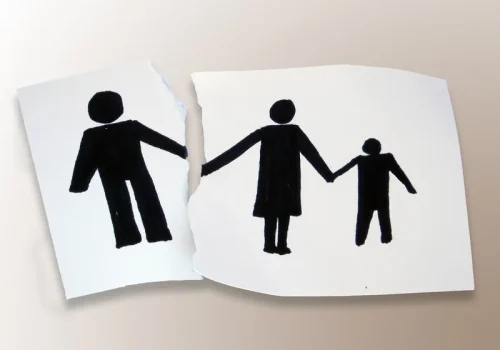When Do Alcohol Seizures Occur? Recognizing and Managing the Risks

Long-term treatment of AUD should begin concurrently with the management of AWS.8 Successful long-term treatment includes evidence-based community resources and pharmacotherapy. Primary care physicians should offer to initiate appropriate medications. Heavy alcohol consumption is a common trigger for seizures in those who already have epilepsy.
FAQs About Alcohol-Related Seizures
Alcohol seizures may share symptoms with seizures that are not linked to alcohol. When people stop consuming alcohol after chronic use, they lose the inhibitory effects of the GABA receptors, resulting in the central nervous system being overstimulated. According to the Epilepsy Foundation, some studies have linked chronic alcohol misuse to the development of epilepsy. This may be due to alcohol’s effect on the brain, sleep, and anti-seizure medications. For patients with refractory DTs, treatment options include phenobarbital or propofol.
Stage 3: 24 to 48 hours after last drink
Signs and symptoms of DTs include disorientation, confusion, agitation, hallucinations, fever, sweating, high blood pressure, and fast heart rate. These symptoms can quickly progress to cardiovascular collapse and death without timely treatment. Binge drinking can trigger alcohol withdrawal seizures 6-72 hours after drinking stops. In a small number of people, binge drinking and alcohol withdrawal can cause status epilepticus, a potentially life-threatening condition where a person has prolonged seizure without regaining consciousness. Seizures can occur during withdrawal from alcohol in people with a history of heavy drinking or long-term alcohol abuse. In fact, as mentioned, alcohol withdrawal seizures are the most common cause of adult-onset seizures.
Multiple Detoxifications Kindle Susceptibility to Alcohol Withdrawal Seizures
Drinking alcohol in small amounts generally does not trigger seizures, but seizures can result from alcohol withdrawal. Status epilepticus is a medical emergency that may lead to lasting brain damage or death. A 2017 review found that a history of alcohol misuse increased the risk of post-traumatic epilepsy in people with traumatic brain injury.
Symptoms of Alcohol Withdrawal: Timeline and Signs of Danger
Compensatory upregulation of NMDA and kainate receptors (54) as well as calcium channels (55,56) also have been implicated in alcohol dependence and withdrawal seizures. The relevance of this mechanism is highlighted by the fact that NMDA-receptor antagonists are highly effective anticonvulsants in animal models of alcohol withdrawal seizures (59). In addition, in experiments with recombinant GABAA receptors, low concentrations of GABA were are alcohol withdrawal seizures dangerous not found to affect the most abundant GABAA-receptor isoforms, which contain the γ2 subunit. Recently, however, it has been discovered that GABAA receptors containing the δ subunit, in particular α4β2δ (36) and α6β2δ (37) receptors, are exceptionally sensitive to ethanol. Because δ subunit–containing GABAA receptors have a highly specific regional distribution, the lack of uniformity in the experimental results is now understandable.

But treatment varies based on the severity of alcohol withdrawal and the likelihood that it could progress to severe or complicated withdrawal. It affects about 50% of people with alcohol use disorder who stop or significantly decrease their alcohol intake. AUD is the most common substance use disorder in the U.S., affecting 28.8 million adults. If you seek treatment for an alcohol use disorder, you will likely begin with a medical assessment. If you’re dependent on alcohol, you may need to go through a tapering period with the help of a doctor. People with moderate-to-severe alcohol use disorder often begin with a medical detox program.
Clinical spectrum
Moreover, because alcohol withdrawal seizures are pharmacologically induced, the pathophysiologic mechanisms almost certainly are different from those of the seizures that occur in genetic and acquired epilepsies. This review provides an overview of the current understanding of the cellular and molecular events that lead to alcohol withdrawal seizures. Without treatment, alcohol withdrawal seizures can progress to status epilepticus or delirium tremens, both of which are life-threatening complications. That’s why it’s important to do an alcohol detox under medical supervision at an addiction treatment center. The spectrum of alcohol withdrawal ranges from a mild physiologic response to seizures and death. More severe responses are seen in patients with prior episodes of withdrawal, a phenomenon known as “kindling” [26], or other underlying acute conditions.
What Happens When You Stop Drinking Cold Turkey?

During the 12- to 24-hour time frame after the last drink, most people will begin to have noticeable symptoms. These may still be mild, or the existing symptoms might increase in severity. Alcohol withdrawal symptoms range from mild but annoying to severe and life-threatening. The aim is to do a review of the literature on alcohol withdrawal and the onset of seizures in individuals with alcohol addiction.
Benzodiazepines
- The aim is to do a review of the literature on alcohol withdrawal and the onset of seizures in individuals with alcohol addiction.
- Similarly, studies in rodents have shown that repeated alcohol withdrawal experiences increase the severity and duration of subsequent withdrawal seizures (85,86).
- The goal is to safely and gradually decrease your dependence on alcohol so that you can resume your daily life.
- However, recent data suggest a much lower repeat seizure rate of 13% to 24%.12 The incidence of partial (focal) seizures, common with posttraumatic epilepsy, is increased by alcohol withdrawal.
- For most people, alcohol withdrawal symptoms will begin sometime in the first eight hours after their final drink.
This typically occurs if women have 4 or more drinks and men have 5 or more drinks within about a 2-hour period. If your symptoms are more severe, you may need to stay in the hospital. This is so your doctor can monitor your condition and manage any complications.

Alcohol Withdrawal Seizures (Rum Fits)

Binge drinking refers to a scenario where you drink a lot in a short period of time, and the seizures related to binge drinking can stem from withdrawal. Even if you’re not a chronic drinker, in some cases, you may also experience withdrawal seizures after binge drinking. A broadly used and well-validated rating scale measuring the severity of alcohol withdrawal is the Clinical Institute Withdrawal Assessment for Alcohol—Revised (CIWA-Ar) (Sullivan et al., 1989).


Leave a Reply